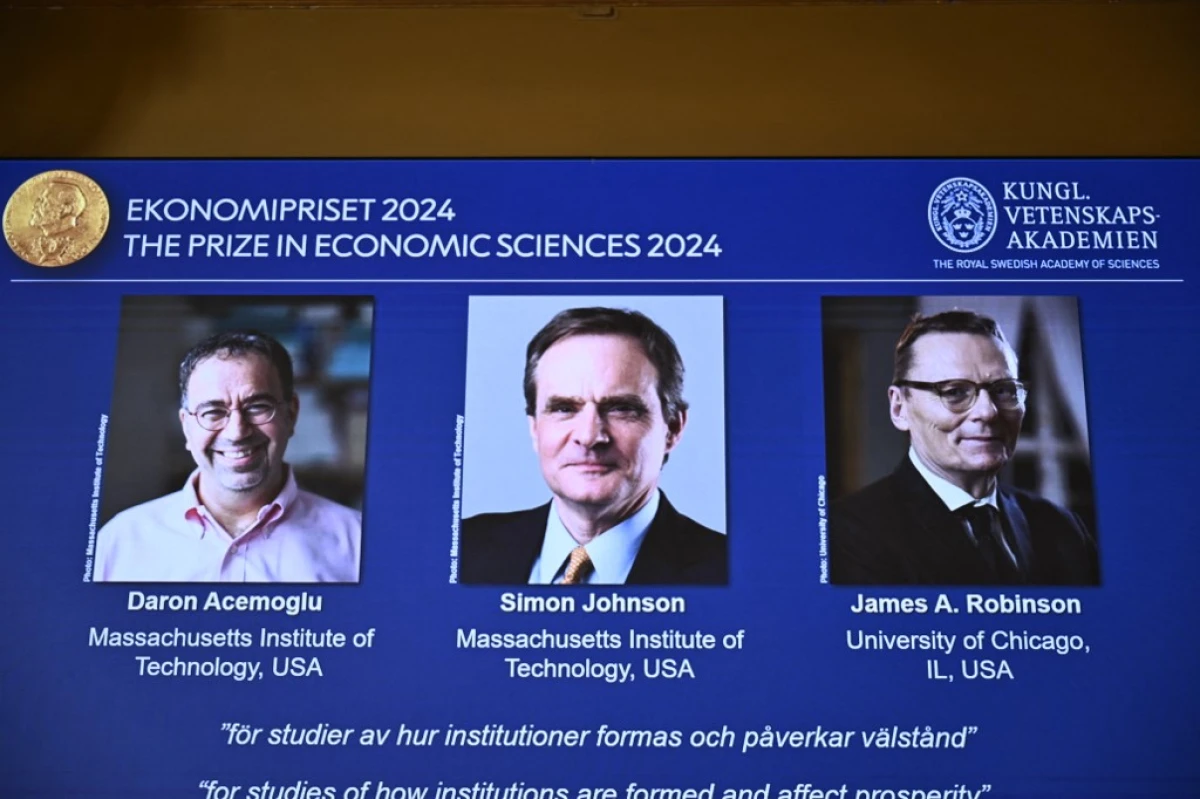
Daron Acemoglu, Simon Johnson and James A.Robinson are three poverty theorists whose paths have crossed at various times and have several works they authored together, such as ‘The Reverse of Fortune: Geography and Institutions in the Generation of the Current Distribution of income’, which ended up giving them the Nobel Prize in Economics this Monday.
>>> You may be interested in: Japanese organization Nihon Hidankyo wins the 2024 Nobel Peace Prize
Acemoglu, born in Istanbul in 1967 to Armenian parents, maintains that the main motivation for his work is precisely the understanding of the origins of poverty. His career began at the London School of Economics, where he earned his doctorate and taught for several years before moving to MIT in the US.
Simon Johnson, born in 1963 in Shefield (United Kingdom), is also a professor at MIT and was chief economist of the International Monetary Fund (IMF) between 2007 and 2008.
In 2011 he caused controversy by describing Josef Ackermann, then president of Deutsche Bank, as the most dangerous banker in the world.
During the financial crisis, Johnson rejected the thesis that home buying by low-income people had been the fundamental factor. For him, the origin of the crisis was in the deregulation of the financial sector.
Robinson is the only one of the three winners who is not a professor at MIT, but at the University of Chicago. His first meeting with Acemoglu occurred during the time they shared at the London School of Economics. The two published together the books “Economic origins of dictatorship and democracy” (2006), “Why countries fail” (2012) and “The narrow corridor (2019).
On Robinson’s part there has been a special interest in Latin America and Africa: he has done research in Botswana, Chile, Colombia and the Democratic Republic of the Congo, among other countries.
The role of institutions in the generation of wealth
A key to the work of the three winners – all nationalized in the US – has been the preponderant role that institutions have in the generation of wealth and equity.
Through this perspective they also try to explain the differences between nations which, as they have shown, depend fundamentally on existing institutions and not on other factors, such as geography or culture.
This approach generated a debate between the three and Jeffrey Sachs that gave preponderance to the geographical factor to explain the differences.
>>> We recommend you read: South Korean writer Han Kang wins the 2024 Nobel Prize in Literature
Source: https://www.noticiascaracol.com/mundo/los-teoricos-acemoglu-johnson-y-robinson-se-llevaron-el-nobel-de-economia-cb20


